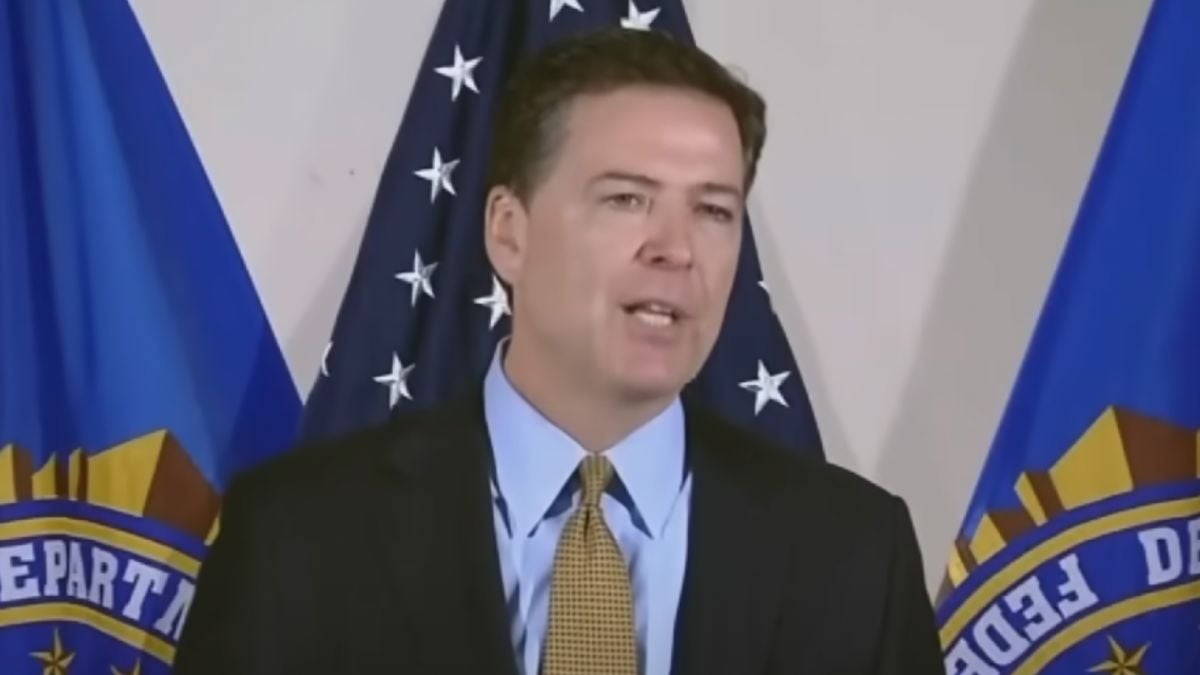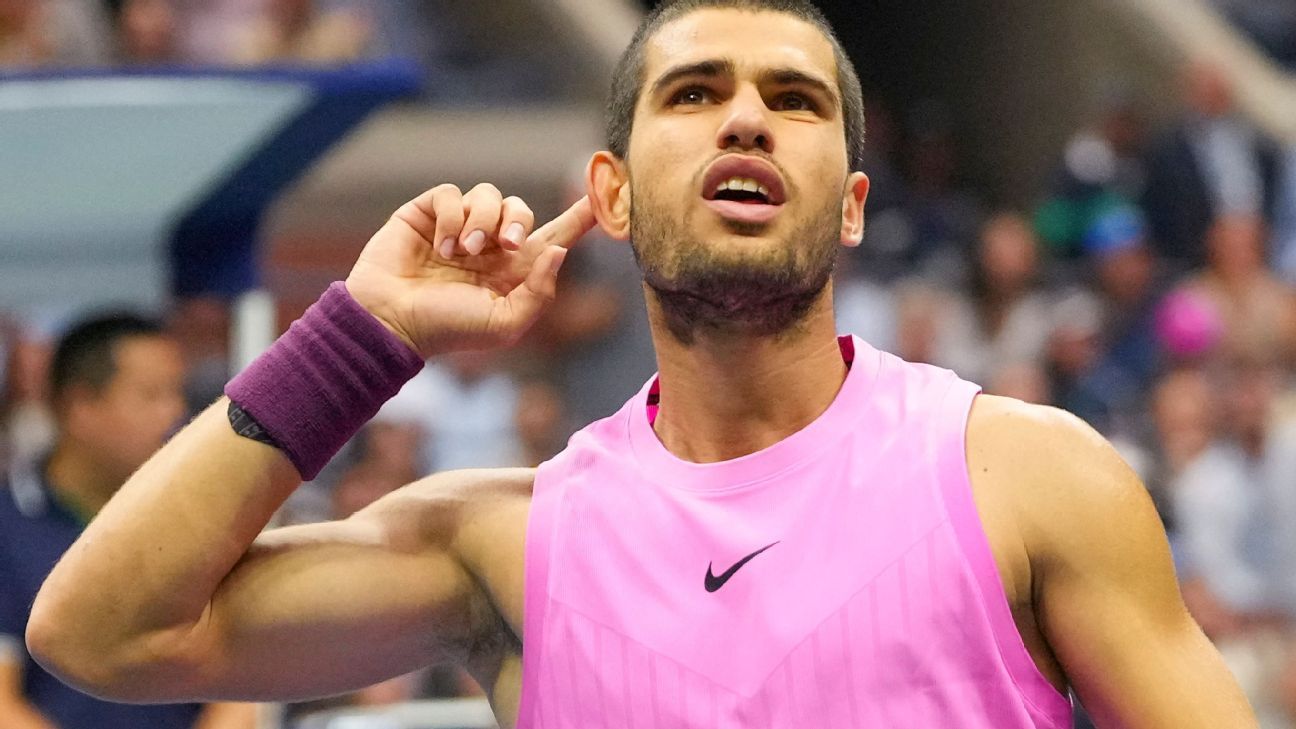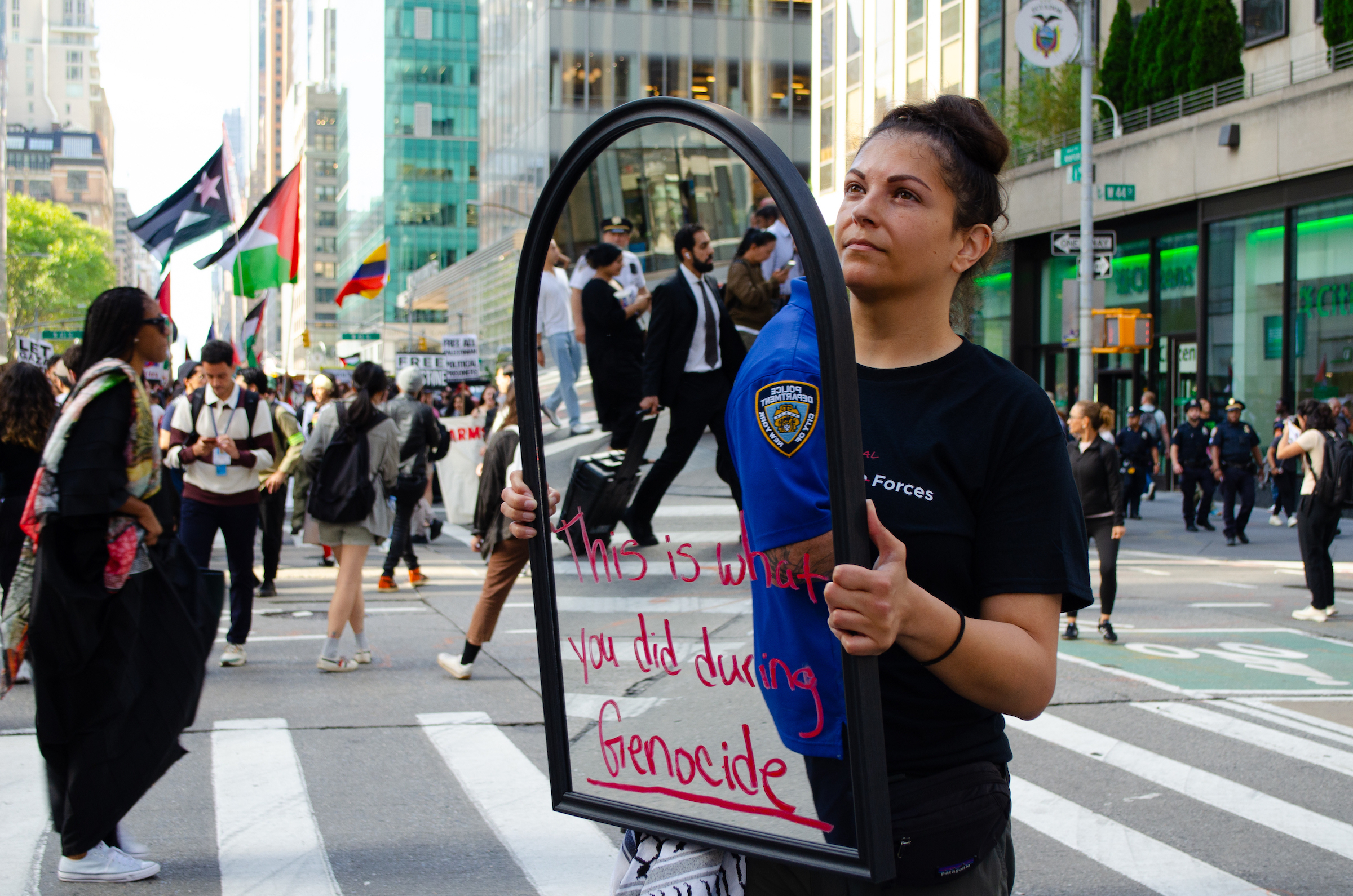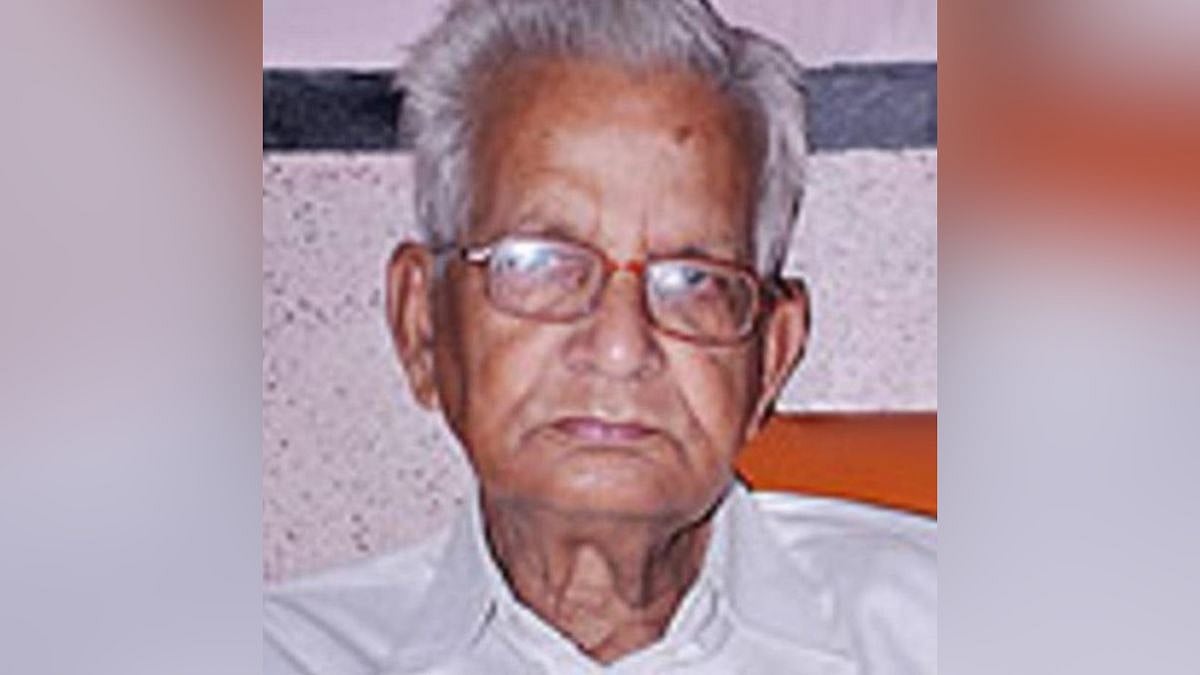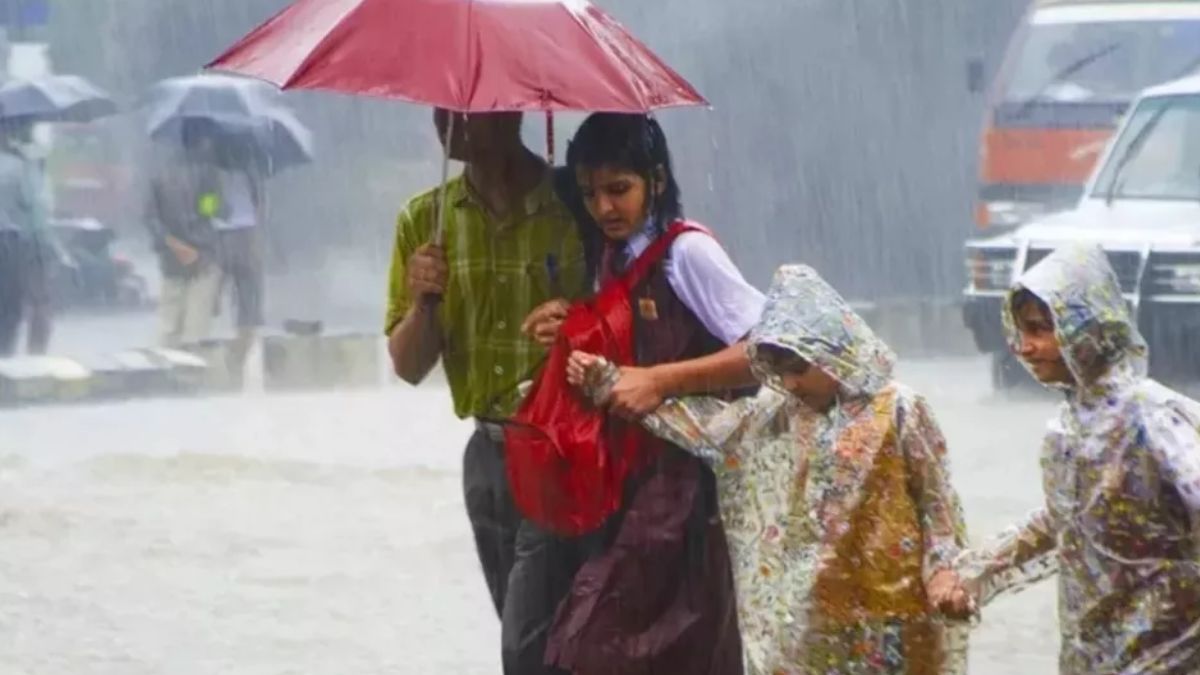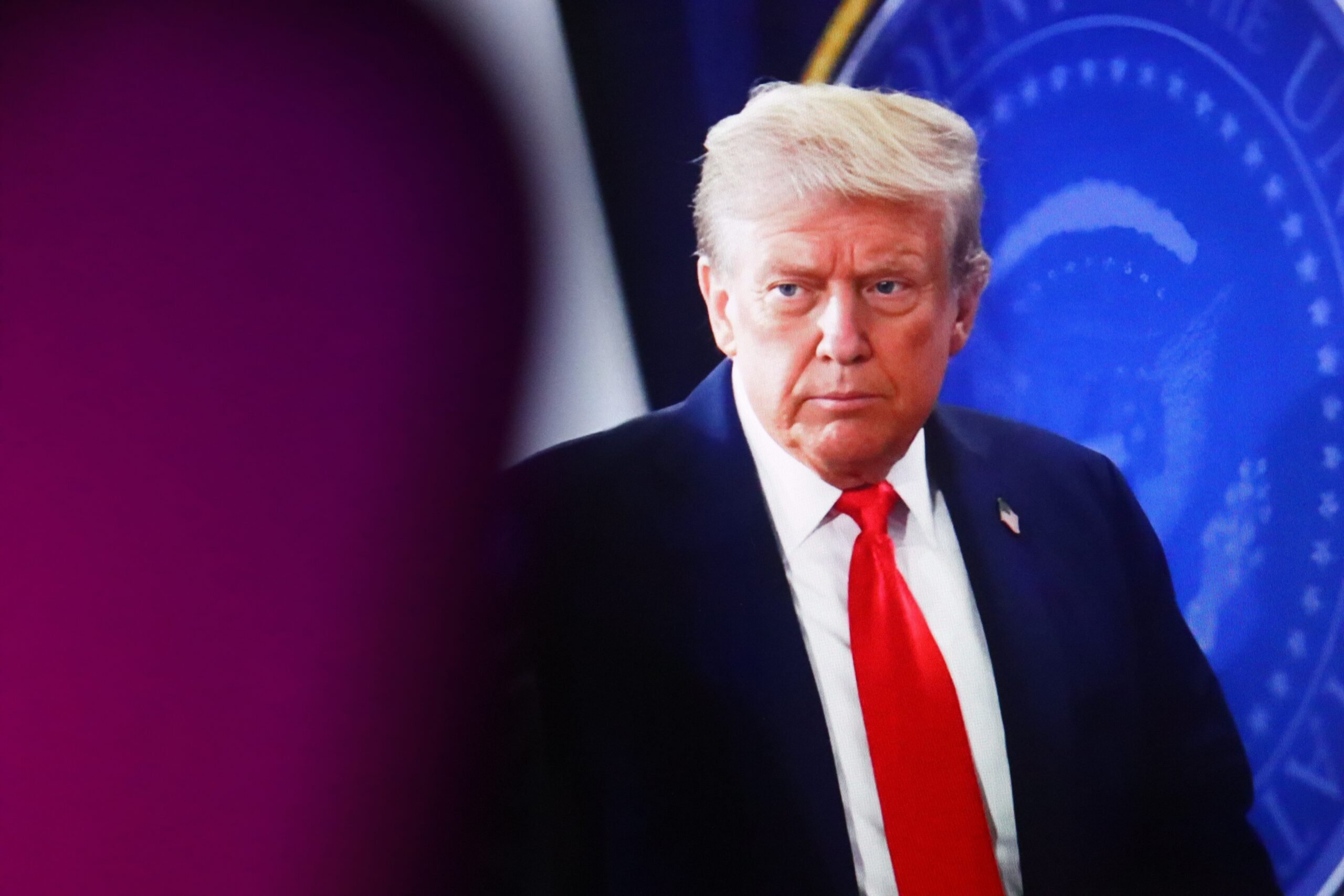The tragedy of India: Leftist rag The Wire gives space to former J&K CM Mehbooba Mufti to whitewash two Islamic terrorists
Jammu and Kashmir’s People’s Democratic Party president, and former J&K Chief Minister, Mehbooba Mufti, wrote an article published in the leftist media portal The Wire on September 22, 2025, whitewashing the heinous acts of terrorists Afzal Guru and Yasin Malik and putting the blame on the Indian state. The politician accused the Indian state of showing “institutional duplicity” in dealing with terrorists Afzal Guru, who was executed for attacking the symbol of India’s sovereignty, the Indian Parliament, and Yasin Malik, who was convicted of waging war against the Indian state. Screenshot from the Wire Describing the convicted terrorists as “whistleblowers” and “peace-builders”, Mufti accused the Indian state of convicting the two terrorists through “a deeply flawed legal process”. She alleged that the Indian state did not properly investigate the case against Afzal Guru and “executed him to satisfy the collective conscience of the country”. She further alleged that Jammu Kashmir Liberation Front (JKLF) terrorist Yasin Malik was convicted not for waging war against India, but for a “peace process”, which the state allegedly directed him to be a part of. “This is not just about two men; it is about how we, as a nation, choose to confront our past and whether we’re willing to learn from it. Do we want peace or permanent punishment? Do we seek truth or only what is politically convenient?” wrote Mufti, who once refused to unfurl the Indian flag. Drawing a parallel between Afzal Guru and Yasin Malik, she wrote, “Separated by time, context, and ideology, both men now stand united not only in memory, but in what their cases expose: how the Indian state has used individuals to serve short-term goals and then discarded or punished them once they outlived their usefulness”. Afzal Guru was a whistleblower: Mufti In her article, Mufti expresses her deep sympathies for Afzal Guru, who was hanged in 2013 after being convicted in connection with the 2001 Parliament attack. Mufti said that Afzal had written a letter from jail, in which he named a senior officer in the Special Task Force, Davinder Singh, who allegedly forced Afzal into “helping the very people later accused of the parliament attack”. According to Mufti, the fact that Davinder Singh was later caught by the Indian agencies while transporting terrorists in Kashmir should absolve Afzal of his crime. She accused the Indian government of giving differential treatment to “whistleblower” Afzal Guru and Davinder Singh just because the former was caught before the latter. “Afzal was branded a terrorist. Singh was quietly sidelined. One was executed and the other, protected,” Mufti lamented. Completely ignoring the fact that Davinder Singh is facing the same judicial system as did Afzal Guru, Mufti questioned the Indian justice system, saying, “What does it say about our justice system when a man names a police officer who is later arrested for terrorism, and yet, it is the whistleblower who is hanged, while the officer remains shielded?” It is Mufti’s logic that a criminal who discloses the name of another criminal should not be considered a criminal merely for naming the other criminal. The fact that Davinder Singh is undergoing a fair judicial trial, as did Afzal Guru, does not matter to Mufti, or rather doesn’t help her narrative. Afzal Guru was hanged for his acts, and Davinder Singh is being tried for the charges levelled against him and will face punishment if convicted. Yasin Malik is a peace-builder: Mufti Mufti also feels for convicted terrorist Yasin Malik, who had kidnapped her sister Rubaiya Sayeed in 1989 and was charged in the killings of four Indian Air Force personnel, besides being convicted under the Unlawful Activities Prevention Act (UAPA) in a terror funding case. Mufti claims that Yasin Malik was ‘used’ by the Indian government for some peace outreach program. “Yasin Malik, once a militant, renounced violence in 1994 and committed himself to political dialogue. For more than two decades, he was embraced by the very state that would later condemn him,” Mufti wrote. She believes that Yasin Malik “was asked by Indian Intelligence Agencies” to meet Pakistan-based terrorist Hafiz Saeed in Pakistan to convince him “to urge a shift from violence to dialogue.” And therefore, as per Mufti, his conviction under UAPA, which was based on evidence, including his links with Hafiz Saeed, was unfair. Mufti wants the Indian state to believe terrorist Yasin Malik, whose criminal acts were proved in a court of law, when he says that he has renounced violence and has chosen the path of dialogue. Using the examples of convicted terrorists Afzal Guru and Yasin Malik, Mufti tries to prove that it is the Indian state and the Indian judicial system which are at fault for convicting these terrorists, and not the terrorists who engaged in anti-national and terrorist activities when they liked and later adopted the path of dialogue when it loo
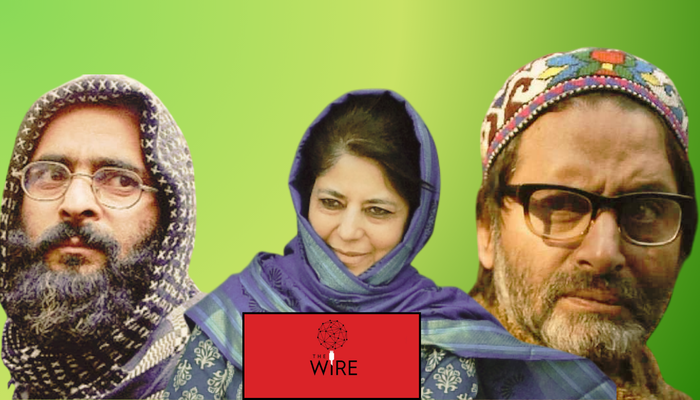


Jammu and Kashmir’s People’s Democratic Party president, and former J&K Chief Minister, Mehbooba Mufti, wrote an article published in the leftist media portal The Wire on September 22, 2025, whitewashing the heinous acts of terrorists Afzal Guru and Yasin Malik and putting the blame on the Indian state. The politician accused the Indian state of showing “institutional duplicity” in dealing with terrorists Afzal Guru, who was executed for attacking the symbol of India’s sovereignty, the Indian Parliament, and Yasin Malik, who was convicted of waging war against the Indian state.

Describing the convicted terrorists as “whistleblowers” and “peace-builders”, Mufti accused the Indian state of convicting the two terrorists through “a deeply flawed legal process”. She alleged that the Indian state did not properly investigate the case against Afzal Guru and “executed him to satisfy the collective conscience of the country”. She further alleged that Jammu Kashmir Liberation Front (JKLF) terrorist Yasin Malik was convicted not for waging war against India, but for a “peace process”, which the state allegedly directed him to be a part of.
“This is not just about two men; it is about how we, as a nation, choose to confront our past and whether we’re willing to learn from it. Do we want peace or permanent punishment? Do we seek truth or only what is politically convenient?” wrote Mufti, who once refused to unfurl the Indian flag. Drawing a parallel between Afzal Guru and Yasin Malik, she wrote, “Separated by time, context, and ideology, both men now stand united not only in memory, but in what their cases expose: how the Indian state has used individuals to serve short-term goals and then discarded or punished them once they outlived their usefulness”.
Afzal Guru was a whistleblower: Mufti
In her article, Mufti expresses her deep sympathies for Afzal Guru, who was hanged in 2013 after being convicted in connection with the 2001 Parliament attack. Mufti said that Afzal had written a letter from jail, in which he named a senior officer in the Special Task Force, Davinder Singh, who allegedly forced Afzal into “helping the very people later accused of the parliament attack”. According to Mufti, the fact that Davinder Singh was later caught by the Indian agencies while transporting terrorists in Kashmir should absolve Afzal of his crime. She accused the Indian government of giving differential treatment to “whistleblower” Afzal Guru and Davinder Singh just because the former was caught before the latter.
“Afzal was branded a terrorist. Singh was quietly sidelined. One was executed and the other, protected,” Mufti lamented. Completely ignoring the fact that Davinder Singh is facing the same judicial system as did Afzal Guru, Mufti questioned the Indian justice system, saying, “What does it say about our justice system when a man names a police officer who is later arrested for terrorism, and yet, it is the whistleblower who is hanged, while the officer remains shielded?” It is Mufti’s logic that a criminal who discloses the name of another criminal should not be considered a criminal merely for naming the other criminal. The fact that Davinder Singh is undergoing a fair judicial trial, as did Afzal Guru, does not matter to Mufti, or rather doesn’t help her narrative. Afzal Guru was hanged for his acts, and Davinder Singh is being tried for the charges levelled against him and will face punishment if convicted.
Yasin Malik is a peace-builder: Mufti
Mufti also feels for convicted terrorist Yasin Malik, who had kidnapped her sister Rubaiya Sayeed in 1989 and was charged in the killings of four Indian Air Force personnel, besides being convicted under the Unlawful Activities Prevention Act (UAPA) in a terror funding case. Mufti claims that Yasin Malik was ‘used’ by the Indian government for some peace outreach program. “Yasin Malik, once a militant, renounced violence in 1994 and committed himself to political dialogue. For more than two decades, he was embraced by the very state that would later condemn him,” Mufti wrote. She believes that Yasin Malik “was asked by Indian Intelligence Agencies” to meet Pakistan-based terrorist Hafiz Saeed in Pakistan to convince him “to urge a shift from violence to dialogue.” And therefore, as per Mufti, his conviction under UAPA, which was based on evidence, including his links with Hafiz Saeed, was unfair.
Mufti wants the Indian state to believe terrorist Yasin Malik, whose criminal acts were proved in a court of law, when he says that he has renounced violence and has chosen the path of dialogue. Using the examples of convicted terrorists Afzal Guru and Yasin Malik, Mufti tries to prove that it is the Indian state and the Indian judicial system which are at fault for convicting these terrorists, and not the terrorists who engaged in anti-national and terrorist activities when they liked and later adopted the path of dialogue when it looked convenient. Mufti, who said that she wouldn’t raise the Indian flag until the flag of Jammu & Kashmir was restored, wants the Indian State to see the so-called “wrongs” alleged by her, “not as Kashmiri grievances but as Indian failures”.
Mufti is right that something unites Afzal Guru and Yasin Malik, but it is not their alleged “use” by the Indian state, but by the fact that they were both terrorists who saw the Indian state and the Indian people as enemies and attacked India’s integrity and sovereignty.
Terrorists Afzal Guru and Yasin Malik
On the 13th of December, 2001, around 24 years ago, India witnessed one of its darkest days when a terrorist attack was carried out on the Indian Parliament. Nine people, including eight security personnel and one gardener, lost their lives in the attack, and 16 people, including 13 security personnel, sustained injuries. Among those arrested in connection with the attack was Afzal Guru. After about a year-long trial, Afzal Guru was granted capital punishment in August 2002. He was executed in February 2013.
JKLF leader Yasin Malik is in prison after being sentenced to life imprisonment by the Special NIA court for terror funding activities in Jammu and Kashmir in May 2022. He was convicted under the UAPA after he pleaded guilty in the case. He was awarded two life imprisonment sentences, in addition to five 10-year sentences, all to run concurrently. Malik is also facing charges for the kidnapping of Mufti’s sister, Rubiya Saeed, and killing 5 IAF personnel in early 1990. He is also allegedly involved in the killing of Justice Neelkanth Ganju, the judge who had ordered the death sentence for JKLF terrorist Maqbool Bhatt, and the murder of the former director of Doordarshan Kendra in Srinagar, Lassa Kaul.








